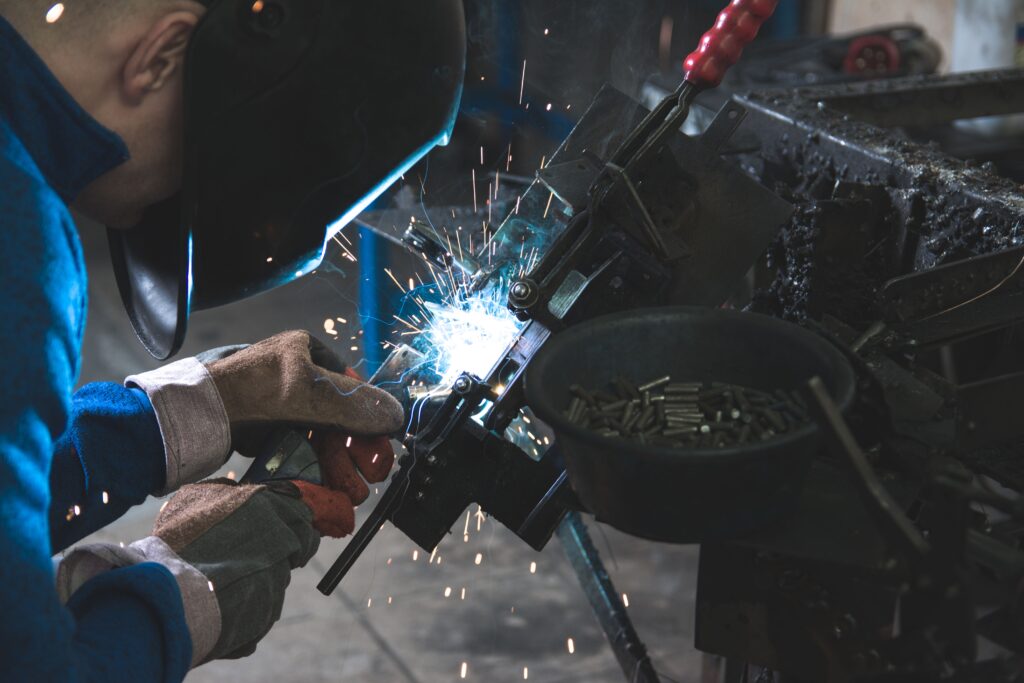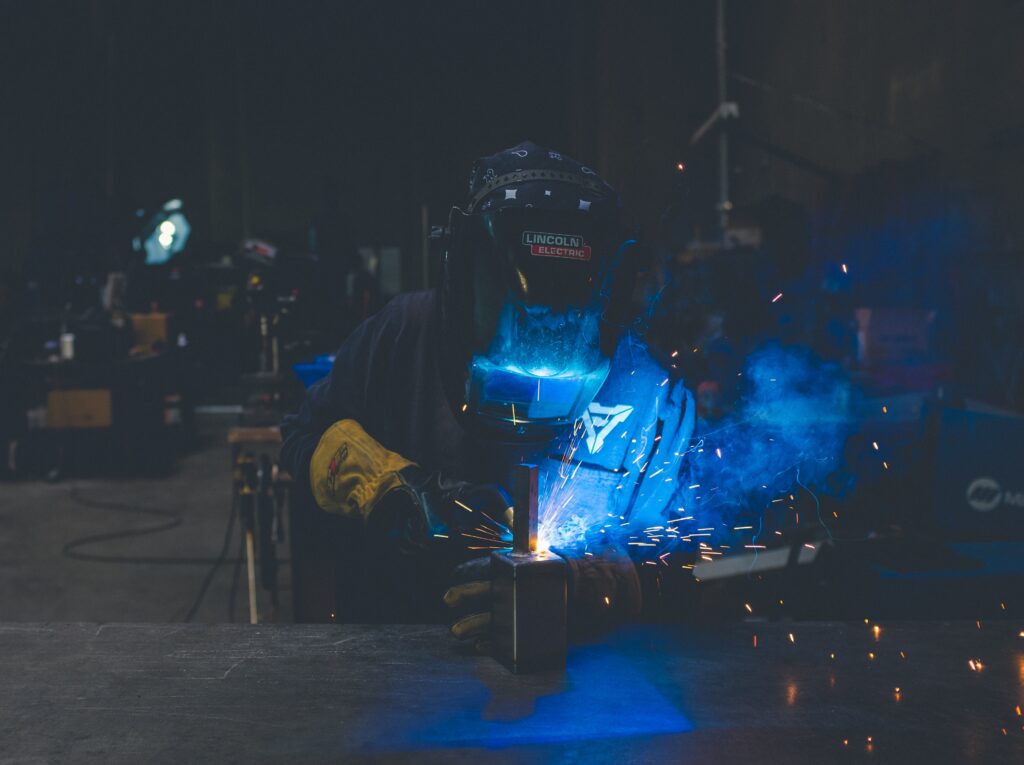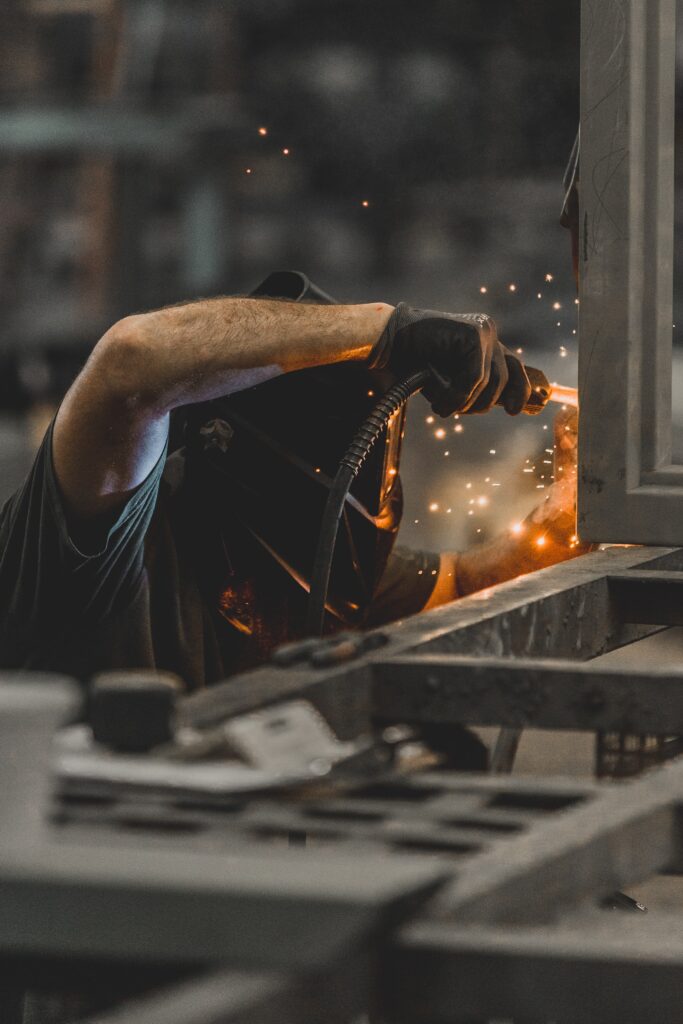Hello there! If you’re keen on knowing how welders feel about their profession, then you’re in the right place. “Are Welders Happy With Their Job?” offers an engaging and insightful look into the world of these skilled craftspeople. It shines a light on what it’s like to work in this trade, the good, the bad, and everything in between. Whether you’re a welding aficionado, someone considering this line of work, or just curious about this trade, this revealing read is sure to satisfy your curiosity and provide a fascinating exploration of the welding world through its most important part – its workers. Get ready to meet the minds behind the masks and learn about life from their perspective. It’s an enlightening journey you won’t want to miss!

Understanding the Welding Profession
When it comes to blue-collar jobs, the welding profession is one of the most essential and, equally, hard-working. An essentially ubiquitous part of so many industries, from manufacturing to construction, this gig requires a level of precision and dedication that not all vocations uphold.
Explanation of welding
Welding is a fabrication process that, at its core is all about joining materials, most often metals or thermoplastics, by causing fusion. It’s a world where heat and devotion come together, leading to the amalgamation of once distinct pieces. It goes beyond mere ‘joining’, as you literally melt the base materials being used, creating a pool of molten material that eventually cools to become one solid united and unbroken piece.
Brief history of welding
The process of welding has a long and storied history dating back to the Bronze Age, where it was used for small gold boxes. Fast forward to the Middle Ages, blacksmiths hammered heated metals together, unknowingly employing early welding methods. However, it wasn’t until the 19th century that the real innovations began, with the discovery of electrical arc welding. Since then, advances in technology and understanding of materials science have made welding a highly technical, skill-dependent field.
Current state of welding profession globally
Globally, the welding profession is more critical than ever. With world development intensifying, demand for skilled welders is on the rise. From infrastructure projects to vehicle manufacture, welding services are indispensable. Yet, despite this growing demand, the welding industry grapples with the challenge of an aging workforce, with the average age of a welder at 55 years old.
Job Specification of Welders
As an essential part of the workforce, welders have considerable responsibilities. In conditions that can be demanding, their range of skills and level-headedness come to the fore.
Roles and responsibilities of welders
Welders’ activities and responsibilities extend from interpreting blueprints to operating welding machines. They hold the duty of ensuring the workpiece’s designs are feasible and structurally sound, and must ensure their work adheres to safety regulations.
Work environment of welders
The work environment for welders can be quite varied. From an open-air construction site to a controlled factory environment, the physical conditions for a welder are equally challenging and diverse.
Working hours and conditions of welders
With regular full-time hours, welders often work additional overtime to meet project deadlines. They often have to work in challenging conditions, such as working in high places, tight spaces, or outdoors exposed to all kinds of weather conditions.

Required Skills and Training for Welders
To be a welder, it’s not enough just to yearn; you must also learn. The profession needs a technical skill set, matched with certified training for performance and safety.
Essential skills for successful welding
A successful welder needs to possess a varied skill set: interpret detailed schematics, steady hands for precise work, and the physical stamina to handle demanding tasks. Moreover, a knack for numbers, troubleshooting ability, and knowledge of various welding techniques are desirable.
Types of training and certification for welders
Training for welders ranges from vocational courses to extensive apprenticeships. Certification varies based on requirement and jurisdiction. These certifications not only validate the welder’s skills but also enhance their employability and credibility.
Potential career advancement in welding industry
With experience and further training, welders can explore areas like welding inspection and supervision. They may also choose to specialize in a specific type of welding, increasing their earning potential.
The Challenges Faced By Welders
Despite its omnipresence, welding is a challenging occupation. From physical risks to psychological stresses, welders endure a demanding environment.
Risks and hazards associated with welding
Welding involves various risks, from burns and injuries from flying particles to health hazards from inhaling fumes. Welders also risk exposure to high intensity light which can damage eyesight.
Reported incidents of physical challenges by welders
Statistics show that welders frequently report physical issues, such as back pain from constant bending and lifting heavy materials. Ergonomic issues often result from the repetitive nature of welding tasks.
Psychological stress factors in welding industry
Welding carries psychological stress too. The risk associated with handling dangerous equipment and working in potentially hazardous environments may take a toll on mental health. Welders often deal with fatigue, stress, and deadlines simultaneously.

Job Satisfaction Among Welders
There’s plenty to appreciate in welding careers: they’re hands-on, skill-driven, and critically essential. But are welders happy with their jobs? Here, we’ll delve into job satisfaction in this profession.
What factors contribute to job satisfaction for welders?
Job satisfaction among welders typically hinges on three factors: salary, benefits, and job security. Work-life balance, supportive work culture and opportunities for growth also play a part in the happiness formula.
Average job satisfaction rating among welders
The average job satisfaction rating among welders varies across regions and sectors, but overall it seems quite polarized. Some welders express immense satisfaction with the nature of their work, while others complain of highly demanding conditions and immense pressure.
Testimonies and stories from satisfied welders
Despite the challenges of their job, many welders are thrilled with their line of work. They often give emphasis to the feeling of fulfillment from constructing or repairing something with their own hands.
Welders’ Compensation and Benefits
Welders’ earnings are usually commensurate with the skill and experience they bring to the job.
Analysis of welders’ average earnings
The mean national wage for welders, according to the Bureau of Labor Statistics, is close to the national average for all occupations. However, income varies greatly based on experience, specialization, and the industry in which they work.
Comparison of earnings with other similar trades
When compared to other similar trades, welders tend to fare reasonably well in terms of compensation, particularly those at the higher end of the pay scale.
Available benefits for welders
Beyond the paycheck, welders often have access to benefits like health insurance, vacation time, and retirement plans. Additionally, some employers provide protective equipment and allowances for necessary tools.
Comparative Job Happiness in Different Fields of Welding
Satisfaction in welding careers can often correlate with the type of work and sector you’re engaged in.
Comparing satisfaction in different welding processes
Certain welding processes may yield greater job satisfaction than others. For instance, robotic welding, which reduces the physical strain on welders, may be preferred to manual welding, which can be arduous.
Welding in construction vs. manufacturing: which is happier?
This is as subjective as it gets. Some may find joy in the collaborative, monumental outcomes of construction welding, while others might prefer the repetitive, controlled environment of manufacturing welding.
Are freelance or self-employed welders happier?
Freelance or self-employed welders often report higher satisfaction rates, citing the flexibility and control over their work. However, this often comes with increased administrative duties and uncertainty of work.
Correlation Between Welding Experience and Happiness
Like many skilled professions, there is a relationship between years of experience and job satisfaction.
Impact of years of experience on job satisfaction
Generally, more experienced welders report higher job satisfaction. This may be due to mastery of techniques, higher pay, or satisfaction derived from a mentorship role.
Challenges faced by beginner welders vs experienced welders
While beginners might grapple with the steep learning curve and physical demands of the job, seasoned welders must deal with ergonomic issues, and staying current with advancing technology.
Testimonies from longtime welders about job happiness
Long-term welders often remark that despite the considerable challenges of their job, it’s the deeply satisfying outcome of their work and the camaraderie within their work-crew that keeps them going.
How Can Welding Companies Enhance Welders’ Job Satisfaction?
There’s always room for improvement. Companies can play a pivotal role in boosting welders’ happiness quotient on the job.
Role of the company culture in job happiness
A positive and collaborative company culture can make welder’s job more comfortable. Companies that value safety, offer positive feedback, and make employees feel valued have happier workers.
How continuous skill development can boost job satisfaction
Training opportunities can lead to an improved job satisfaction rating among welders. Access to further training and skill development also pave the way for career progression, keeping the work challenging and engaging.
The impact of appreciating and rewarding welders’ work on their happiness
Employee recognition goes a long way in fostering job satisfaction. A company that appreciates and rewards the work of their welders invariably experiences better job satisfaction ratings.
The Future of Welding Profession and Job Happiness
As technology advances, so does the welding profession. How will that affect job satisfaction in this line of work?
Impact of automation and AI on the welding industry
Automation might be seen as a threat by some welders. However, adopting AI could not just make welding more efficient but also safer, potentially increasing job satisfaction.
Potential changes in welders’ work due to technological advancements
Technological advancements might end up shifting the nature of welders’ work, from the manual to the supervisory, necessitating a new skill set like programming and overseeing robots.
Future trends in job satisfaction among welders
With continuous development in the welding industry, job satisfaction among welders may rest on adaptability to change. As the demands of the job evolve, so should the support and training offered by companies.
In conclusion, it might be a demanding job, but welding can also be deeply fulfilling profession. The next time you see a beautifully painted bridge, a towering skyscraper, or your car, remember, behind all of these are the skilled hands of a welder. Are welders happy with their job? Like any profession, it largely depends on the individual, but one thing is certain: welders form one of the backbone industries of the world, and their work is crucial to our daily lives.
